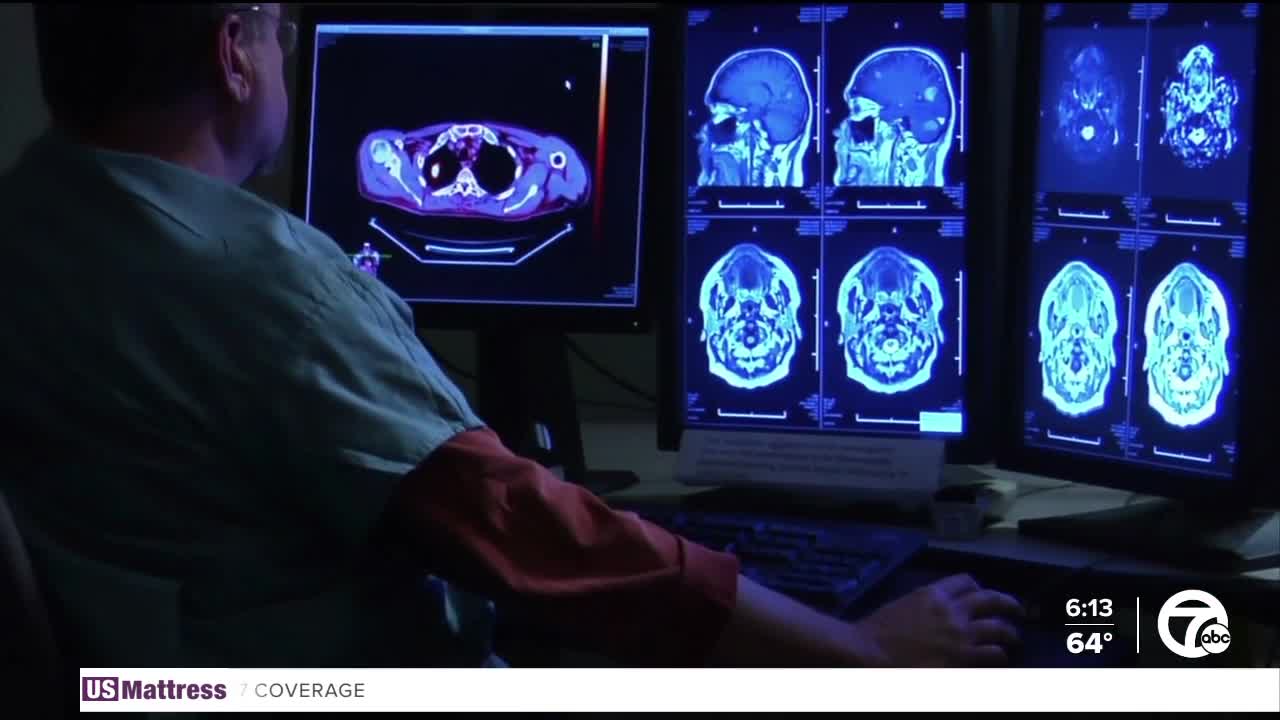(WXYZ) — June is Alzheimer's and Brain Awareness Month, and between 2020 and 2025, the Alzheimer's Association of Michigan expects a 16% jump in the number of Michiganders 65 and older with the disease.
It's a life-changing diagnosis for them and the people who love and care for them, but there are steps that can be taken to reduce the chance of Alzheimer's, and new treatments that are on the horizon.
Heather Barringer knows firsthand how Alzheimer’s and other forms of dementia can rob those suffering from the disease of independence and weigh on family members who provide care. Heather’s mom stepped in when her mom began to struggle.
"I have had a long history with dementia in my family," Barringer said. "Doctors paperwork, prescription paperwork, making sure she knew what appointments needed to be made. As a middle-aged woman myself. I now recognize how exhausting that must have been for my mother."
A new report this spring from the Alzheimer’s Association finds that doctors and the public face challenges distinguishing early Alzheimer's from so-called normal aging. But the subtle changes in memory and thinking of mild cognitive impairment are not normal and can be the first signs of dementia.
"Close to half of those individuals with MCI, or mild cognitive impairment, will develop dementia within the next five years," Dr. Bruno Giordani, the chief psychologist at the Michigan Medicine Department of Psychiatry, said.
But, 40% won't progress. Researchers are trying to better understand why. Giordani said in either case, early identification and treatment are key.
"In our center, we have a number of clinical trials looking at nonpharmacological interventions and things, ways to improve your memory, ways to improve thinking," he said.
These include continued learning, reading, and brain games, along with diet and exercise. Cardiovascular health is essential to brain health.
Like continued learning, reading and brain games. And diet and exercise, since cardiovascular health is essential to brain health.
"Exercise is really important now. They say break a sweat, hit the books," he said.
The earlier you start, the greater the protective benefits.
We also have the first-ever drug to treat the underlying biology of Alzheimer's. It's called Aducanumab.
"This is the first medication, and there have been many tried, that appear to affect it early. And there are at least a couple more down the pike," he said.
That's great news in the fight against Alzheimer's, and folks like Heather who watched her grandmother and ultimately her mother battle dementia, giving her a unique perspective.
"I think it's going to make it easier for me, honestly, to talk to my doctor and have that conversation about where my health is for my brain," Barringer said.
That Alzheimer's Association report says 60% of respondents would not see a doctor when they noticed signs of mild cognitive impairment.
They expressed fear of getting the wrong diagnosis, learning that they have a serious problem, unnecessary treatment, or believing it will just go away on its own. No matter the reason, they are losing valuable time.



